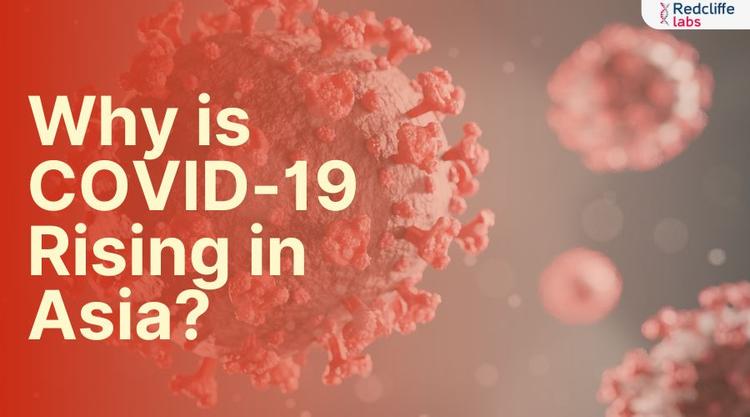A new understanding of congenital heart disease progression opens the door to improved treatment options

Medically Reviewed By
Dr Divya Rohra
Written By Prekshi Garg
on Jun 30, 2022
Last Edit Made By Prekshi Garg
on Jan 8, 2025

According to the National Health Society (NHS), congenital heart disease (CHD) refers to various congenital disabilities that can affect the normal functioning of the heart. These diseases are present from birth. The prevalence of cases of congenital heart diseases is very common. In India, 9 in every 1000 babies born suffer from congenital heart diseases. This makes the estimated number of cases of congenital heart disease in India exceed more than 2,00,000 per year. One of the studies published in Nature on 22nd June 2022 made some interesting interventions related to congenital heart diseases. The study was conducted with the collaboration of some extensive laboratories to study the mechanism of congenital heart disease and make personalised treatment possible for people suffering from congenital heart diseases. In this article, let us know in detail what this study was and what the eminent scientists involved have to say about their findings and future research.

The study
A recent study published on 22nd June 2022 in Nature by a team of scientists working at Texas Heart Institute, Texas Children’s Hospital, and Baylor College of Medicine revealed new findings on the underlying mechanism of the progression of congenital heart disease (CHD). Congenital heart diseases are a wide range of defects that develop in the heart of a growing foetus and are one of the leading causes of childhood death.
In the current study published in Nature, the evidence between the differences in the immune system and heart muscle cells of CHD patients has been illustrated for the first time. The revelation of the key differences and the mechanism of the progression of the disease has proved to be an important landmark in the field of cardiology. These important revelations have made it possible for researchers to formulate new ways to treat CHD.
Though it is well known that CHD will ultimately lead to heart failure, the main cause behind these patients' declining heart function is still unknown. The gap in knowledge and research in this part of CHD has blocked the scope of future research that can help extend the life of CHD patients.
Thus, the current study aims to fill this knowledge gap so that future research is possible. For this study, the Texas Heart Institute and Baylor College of Medicine (Dr. James F. Martin) have collaborated with the director (Dr. Iki Adachi) of the Mechanical Circulatory Support Program (Texas Children’s Hospital), the associate professor of Baylor College of Medicine, paediatric cardiac critical care specialist (Dr. Diwakar Turaga) at Texas Children’s Hospital, and the assistant professor at Baylor College of Medicine. These collaborations were made for profiling the heart and blood samples collected from patients with CHD. The samples included in the study were of patients undergoing heart surgery for Tetralogy of Fallot (TOF), hypoplastic left heart syndrome (HLHS), hypertrophic cardiomyopathies (HCM), and dilated cardiomyopathies (DCM).
According to one of the internationally recognized physician-scientists, Dr. Martin, the advancement in the field of technology like single-cell RNA sequencing, it is now possible to study the samples derived from congenital heart disease patients to study at the single-cell level to improve the natural history of this disease. He has made various contributions in the past in the field of cardiac development, disease pathway, and tissue regeneration.
According to the team of researchers involved in the study, namely, Professor Vivian L. Smith (Department of Integrative Physiology, Baylor College of Medicine) and the director of Cardiomyocyte Renewal Laboratory (Texas Heart Institute), there is still a lot of work that they need to do as a team.
A physician-scientist from Cardiac Intensive Unit (Texas Children’s Hospital), Dr. Turaga, working in cardiac regenerative medicine therapies, said that it is an initial step taken to develop a comprehensive cell atlas for congenital heart diseases. She said that the major objective of their study is to create a roadmap for therapies that target individual cell types and unique gene pathways involved in congenital heart diseases. This will involve both the heart and the immune system. With the advances in technology, this will emerge as a standard treatment for patients who have congenital heart disease.
According to the congenital heart surgeon (Texas Children’s Hospital) and the director of the world’s largest paediatric Heart Transplant and Ventricular Assist Device Program, Dr. Adachi, this exciting study is just the beginning and the massive collaboration between extremely sophisticated laboratories have the potential to go a long way. Dr. Adrachi specialises in the reconstruction of surgical procedures of congenital heart disease lesions, including the procedures that were analysed in this study.
The findings made in this paper are really exciting. The study has provided a roadmap for the development of personalised medicine for people suffering from congenital heart diseases. The study has also provided the scientific community with a resource centre that contains samples of rare paediatric heart disease that can be used further for new research and to improve the understanding related to congenital heart disease.
Takeaway:
Congenital heart disease is a developmental disease that affects the child at the foetal stage. Death is usually the ultimate outcome of this condition. However, attempts can be made to extend the life of the child. Understanding the mechanism of congenital heart disease can not only help in delaying the aftermath of the disease but can also help in designing personalised treatment protocols to cure the disease. The area of congenital heart diseases still needs a lot of research to provide better living and treatment to the patients suffering from this disease. The findings published in the study have opened doors for future studies in this field and have constructed a roadmap that can be used in the future as a standard treatment for CHD patients.
Frequently Asked Questions (FAQs)
-
What is the main cause of congenital heart disease?
The main cause of CHD is Down’s syndrome, which is a genetic condition caused due to the trisomy of chromosome 21.
-
What are the most common types of congenital heart diseases?
The most common types of CHD include ventricular septal defect, atrial septal defect, Tetralogy of Fallot, single ventricle defects, pulmonary valve stenosis, patent ductus arteriosus, and aortic valve stenosis, and dextro transposition of the great arteries.
-
Can congenital heart diseases be cured?
Generally, there is no cure for CHD. Your cardiologist can recommend surgery for the treatment of this disease. However, the surgery is mostly associated with the long-term effects of heart surgery.



